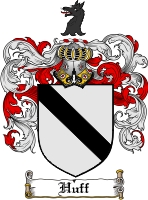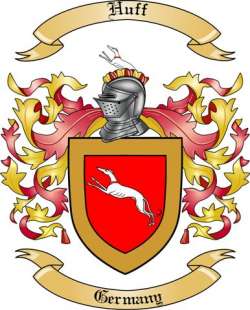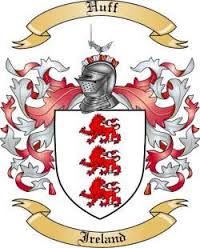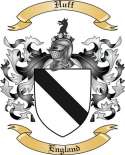HUFF FAMILY HISTORY
compiled by Kent Alan Huff, March 22, 2010
INTRODUCTION
My discoveries on Ancestry.com
by Kent Alan Huff
3-7-2010
I just recently tried out the ancestry.com service and discovered within the first few hours of using it that my family didn't come from Germany as I had been told - we actually come from Holland, and the first to come over to America was in 1650, and his name was Paulus Dirckszen (son of Dirck) Hoff. He came to New York (which was New Amsterdam at the time).
I also discovered that John Huff (1845-1900), Worley Huff’s father, served in the Civil War (he enlisted in Company H, Virginia 64th Infantry Regiment on 22 Aug 1863). John married Nancy Rachel Wells, who was a great-granddaughter of Zachariah Wells (1745-1825), who served as a bodyguard to George Washington in the Revolutionary War.
I also found that the first to come to America on my mother's side was John Dod, who came from England in 1607 on a ship with Captain John Smith and settled in Jamestown, Virginia, and he married the daughter of Chief Eagle Plume of the Powhatan tribe of the Iroquois nation. That daughter was a cousin of Pocahontas. So I’ve discovered that my family is VERY American. I still haven't located a single German relative, but in addition to the Dutch, English and Iroquois ancestors, I've found Irish, Scottish, and French.
So I descend from Chief Eagle Plume – according to the ancestry.com records, he was my 12th great grandfather. Chief Eagle Plume’s brother, Chief Powhatan, was Pocahontas’s father, so that makes Pocahontas my 14th Great Grand Aunt. John and Jane’s son, Jesse Dodson, had a son named Charles
Dodson (1649-1703), who had a son named Charles Dodson Jr. (1675-1715), who had a son named Thomas Dodson (1681-1740), who had a son named Thomas Dodson Jr. (1707-1783), who had a son named William Dodson (1738-1832), who had a son named Simon Dotson (1761-1849) (the last name got changed here to Dotson), who had a daughter named Mary Polly Dotson (1817-1877), who married Charles Huff (1812-1862), who had a son named John Huff (1845-1900), who had a son named Worley Huff (1882-1940), who had a son named Arnold Huff (1906-1950), who had a son named Gary Kenneth Huff (1946-), who is my father.
This website is what I have been able to find out as of today, March 7, 2010. There may be inaccuracies, for that I apologize. This is a work in progress. I am sure I will be building on it as time goes on. I hope you enjoy reading it as much as I have enjoyed compiling it.






